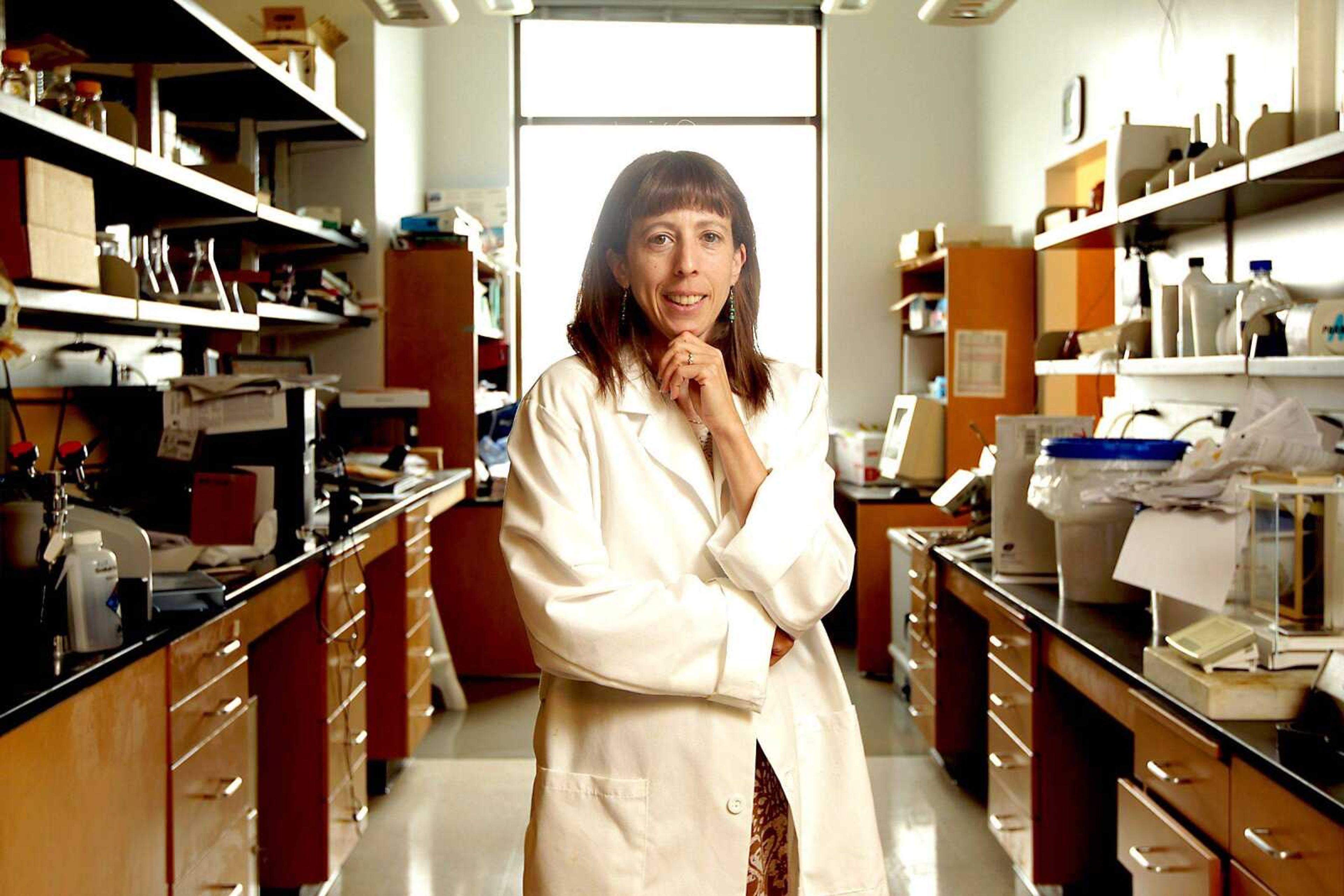Research: Chemical alters development of turtles
ST. LOUIS -- The turtles are in trouble. A chemical found in Missouri's rivers and streams can influence the sex organs of developing turtles, making males more like females, researchers say. A pilot study conducted at the University of Missouri showed the synthetic chemical bisphenol A -- or BPA, which is known to mimic estrogen and disrupt hormone levels in animals -- can alter a turtle's reproductive system after exposure in the egg. ...
ST. LOUIS -- The turtles are in trouble.
A chemical found in Missouri's rivers and streams can influence the sex organs of developing turtles, making males more like females, researchers say.
A pilot study conducted at the University of Missouri showed the synthetic chemical bisphenol A -- or BPA, which is known to mimic estrogen and disrupt hormone levels in animals -- can alter a turtle's reproductive system after exposure in the egg. Turtles are perfect creatures for this type of study because their sex is determined by the temperature of the environment during their development in the egg.
"Cool dudes or hot babes," explained Sharon Deem, director of the St. Louis Zoo's Institute for Conservation Medicine and a lead investigator on the study.
The researchers dropped a liquid form of the chemical onto hundreds of eggs that were incubated at cooler temperatures required to produce male turtles. A few months after they hatched, the turtles' sex organs were removed and studied. The male turtles had developed gonads that were closer to ovaries than testicles.

The BPA essentially overrides the temperature in determining the sex of the turtle, creating an animal that is probably unable to reproduce, Deem said.
The researchers used the same levels of BPA that were found in samples from Missouri waterways including Peruque Creek in St. Charles County, James River in Nixa and Perche Creek in Columbia. The estrogenlike chemical is found in plastics and is thought to contaminate more than 40 percent of U.S. rivers. Estrogen also enters the waterways through the urine of men and women, especially pregnant women and those taking birth control pills. Waste water treatment plants cannot fully remove hormones, sending them back into the natural water system.
The study on turtles is a good indicator of the overall health of the ecosystem because the reptiles live in oceans, rivers and on land, scavenging food from decaying plants and animals.
"We have some environmental issues that are impacting wildlife," Deem said.
The researchers from the university, the zoo, Westminster College and the U.S. Geological Survey recently received a $250,000 grant from the Mizzou Advantage research project to continue the study and compare results among fish, mice and turtles. They also hope to learn whether the introduction of synthetic and natural hormones alters the animals' DNA, which could create problems in future generations.
The changes already seen in animals' reproductive systems indicate the potential for the same effects in humans, the researchers said. Urinalysis has shown that 93 percent of people have detectable BPA levels in their bodies from exposures to plastics or industrial fumes, according to the Centers for Disease Control and Prevention.
Bisphenol A is found in certain food and drink packages including plastic containers, water bottles, baby bottles and cans. The chemical can leech into food or liquid, especially when the packaging is heated. The chemical is believed to pose higher risks to fetuses, infants and children and can potentially affect brain and reproductive development, according to the National Institutes of Health. Earlier this year, University of Missouri researchers showed that pregnant monkeys exposed to very low levels of BPA produced offspring with birth defects.
"If that's happening in [animals], that would suggest it could be happening in humans and babies as well," said Cheryl Rosenfeld, associate professor of biomedical sciences at the University of Missouri.
The Food and Drug Administration has rejected efforts to ban BPA from food packaging, although several manufacturers of baby bottles and canned foods have voluntarily stopped using the chemical.
The researchers hope to eventually take the lab study into the field, where they would take blood samples from turtles to determine their level of contamination, said Dawn Holliday, assistant professor of biology and environmental science at Westminster College. The concern is that chemicals in the waterways could already be altering the natural sex selection of turtles, leading to extinction.
"Changing reproductive rates is not something you would be able to walk out to a creek and observe," she said.
Connect with the Southeast Missourian Newsroom:
For corrections to this story or other insights for the editor, click here. To submit a letter to the editor, click here. To learn about the Southeast Missourian’s AI Policy, click here.









